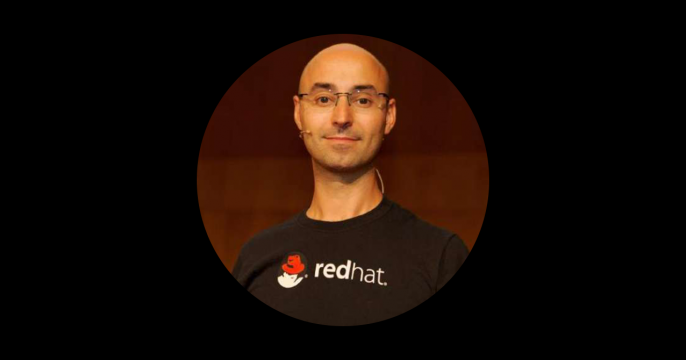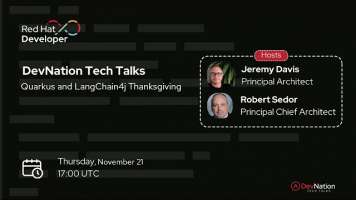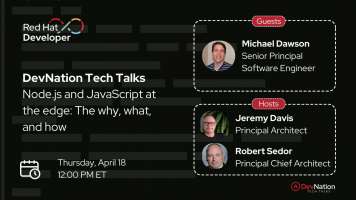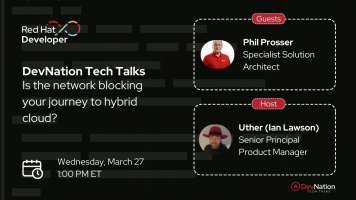DevNation
Join developers across the globe for live and virtual events led by Red Hat technology experts. Sessions include weekly tech talks or talk shows, deep dives on key developer topics, hands-on workshops and labs, and other live events.

Up next in DevNation
Meet our Developer Advocates

Director of Developer Experience

Developer Advocate

Developer Advocate, OpenShift Evangelist

Senior Principal Developer Advocate

Principal Developer Advocate

Developer Advocate

Ryan Jarvinen

Polyglot, Speaker, Author, Digital Evangelist




